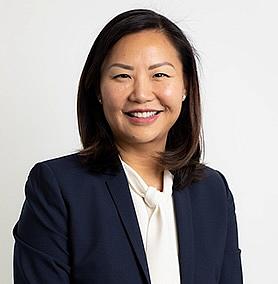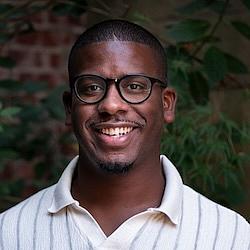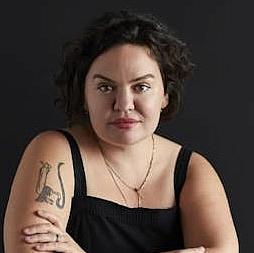Can the Child Welfare System Be Saved?
America’s child welfare system investigates families and removes children at staggering rates. Black children and other children of color are vastly overrepresented in the system, making it an enduring engine of inequality and structural racism. For instance, more than half of all Black children in the U.S. experience a child protective services investigation, compared to less than a third of white children. Advocates and families have documented problems for decades, yet reforms have been slow to take hold. Some critics argue that the country’s fragmented child welfare system is too broken to be fixed and must be abolished. Meanwhile, a new generation of reformers is trying to fix ossified systems. Until recently, foster parents received higher levels of support than family members, but new Biden administration rules end that longstanding practice. And states from Texas to California to New York are coming up with new ways to keep kids out of foster care, and support parents and guardians. Lurid stories of abuse make headlines, but the complex and often heartbreaking story of families torn apart – and ways to rethink child welfare — rarely make the news. For journalists, opportunities abound for solutions-oriented and trauma-informed stories that that address underlying family stressors — and ways to keep kids with parents or relatives. In this webinar, we’ll explore the ongoing crisis, the latest efforts at reform, and how journalists can tell urgent stories of young lives and families at risk.
This webinar is free and made possible by The Commonwealth Fund, the National Institute for Health Care Management Foundation and the Kristy Hammam Fund for Health Journalism.
Panelists

JooYeun Chang is the program director for child well-being at the Doris Duke Foundation. She oversees the program’s grantmaking to promote children’s healthy development and protect them from abuse and neglect. Prior to joining Doris Duke, Chang served as acting assistant secretary and principal deputy assistant secretary for the Administration for Children and Families of the U.S. Department of Health and Human Services, where she was the top federal official overseeing the implementation of national child welfare policy. She also led the state of Michigan’s child welfare system as executive director of the state’s Children’s Services Agency, developing a series of reforms and programs to reduce racial bias in decision making. Prior to her work in the Michigan state government, Chang was a managing director at Casey Family Programs, where she spearheaded work to identify, develop and disseminate information about the most promising practices in child welfare. She earned a bachelor’s degree from North Carolina State University and a J.D. from the University of Miami School of Law.

Sixto Cancel is the founder and CEO of Think of Us, a nonprofit dedicated to transforming the child welfare system. As CEO, Cancel is responsible for leading the organization’s strategy to drive change in child welfare systems across the country. This includes advising state and federal government leaders and bodies to adopt best-practices and improve policies, partnering with private-sector providers and state agencies to design and build technological and practical solutions, creating and managing direct service programs to improve resource accessibility, and directing a research center innovating participatory research practices to address historical knowledge gaps. Drawing on his lived experience growing up and aging out of the child welfare system, Cancel incorporated Think of Us in 2017 as a tech nonprofit, initially designed to use virtual storytelling to shed light on the experiences of foster youth. He led Think of Us through a rapid evolution, creating an app in 2018; assisting the federal government and 44 states in disbursing $400 million in pandemic relief funds to former foster youth in 2020-21 through the Check for Us campaign; building the Lived Experience Network in 2021; and launching the Center for Lived Experience to center lived experience in research and national policy making in 2022. Cancel was named a 2021 Children’s Bureau Champion Award and 2017 Forbes Top 30 Under 30 Social Entrepreneur.

Roxanna Asgarian is a Texas-based independent journalist who writes about child welfare and the law. Her first book, “We Were Once A Family: Love, Death, and Child Removal in America,” explores the flaws of today’s foster care system, taking as its point of departure a deeply reported story of a murder-suicide that claimed the lives of six children. The book was published by Farrar, Straus & Giroux in March 2023. Previously, she was the law and courts reporter for the Texas Tribune from 2022 to 2023. Her work has appeared in The Washington Post, New York, and Texas Monthly, among other publications. She received the 2022 J. Anthony Lukas Work-in-Progress Award for “We Were Once a Family.” A native of Las Vegas, Nevada, Asgarian got her bachelor’s degree in journalism from the University of Texas at Austin and her master’s degree from the Craig Newmark School of Journalism at the City University of New York.
SUGGESTED READING
View JooYeun Chang's webinar slides.
“We Were Once a Family: A Story of Love, Death, and Child Removal in America,” by Roxanna Asgarian (Macmillan, 2023)
“State-Level Variation in the Cumulative Prevalence of Child Welfare System Contact, 2015-2019,” by Youngmin Yi et al., Child Youth Services Review
“Kinship Care is Better for Children and Families,” American Bar Association
“I Will Never Forget That I Could Have Lived With People Who Loved Me,” by Sixto Cancel, The New York Times
“Away From Home: Youth Experiences of Institutional Placements in Foster Care,” 2021 report by Think of Us
“Can ‘Kinship Care’ Help the Child Welfare System? The White House Wants to Try.” By Erica L. Green, The New York Times
“‘Deluged’ child welfare systems struggle to protect kids amid calls for reform,” by Olivia Hampton, NPR
“In Child Welfare Cases, Most of Your Constitutional Rights Don’t Apply,” by Eli Hager
“D.C. gets funds to expand ‘warmline,’ a social services hotline,” by Ellie Silverman, The Washington Post
“The ‘Death Penalty’ of Child Welfare: In Six Months or Less, Some Parents Lose Their Kids Forever,” by Agnel Philip and Eli Hager, ProPublica, and Suzy Khimm, NBC News
“For Black Families in Phoenix, Child Welfare Investigations Are a Constant Threat,” by Eli Hager and Agnel Philip, ProPublica, and Hannah Rappleye, NBC News
“Parenting classes are routinely ordered in child abuse cases. California isn’t ensuring they work,” by Mackenzie Mays, Los Angeles Times
“California can take kids from abused moms. Why the separation can harm both,” by ChrisAnna Mink, CalMatters
“HHS Announces Historic Child Welfare Package to Expand Support and Equity in Child Welfare System” (press release)